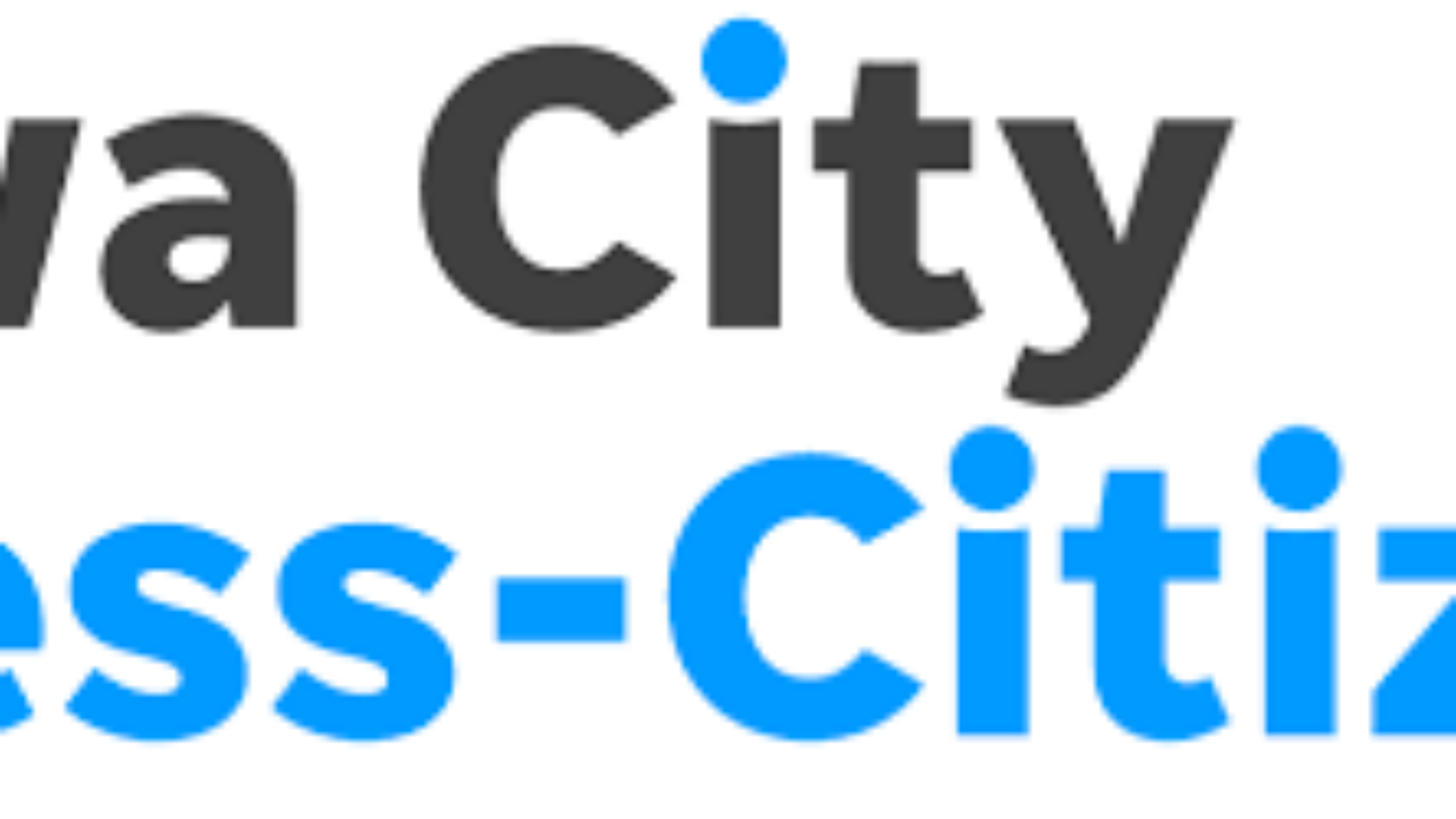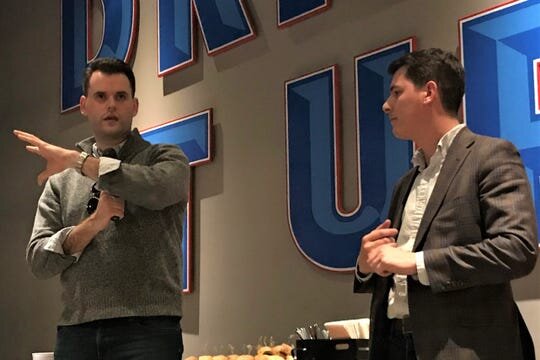‘Reds’ and ‘Blues’ find common ground in Iowa City
February 7, 2020
There are some topics of conversations you just don’t broach with strangers, chief among them religion and politics. In grade school, students learn about war fought over the former, but in today’s American news climate, it’s schisms in the latter causing contention.

There are some topics of conversations you just don’t broach with strangers, chief among them religion and politics. In grade school, students learn about war fought over the former, but in today’s American news climate, it’s schisms in the latter causing contention.

An astounding 91% of poll respondents to a 2018 survey by Public Religion Research Institute said the country is divided over politics. PRRI, a nonprofit, nonpartisan research institute, found that more Americans say the country is divided over politics than over race and ethnicity (83%) or religion (77%), heading into the 2018 election.
On Thursday night, more than 80 people sipped beers at Iowa City’s Big Grove Brewery hoping not to dull the important fractures in politics today but to create cross-partisan bonds that might make bridging them possible.
“We are at what feels like a really fractured moment in our national politics and because increasingly our local elections are nationalized, who you support locally is indicative of who you are (and) who you support nationally,” said State Sen. Zach Wahls, D-Coralville. “I think the tenor of what is happening in Washington D.C. is, unfortunately, trickling down to some extent to Iowans, to communities like our own.”
Side-by-side with Wahls, State Rep. Joe Mitchell, R-Mount Pleasant, said even as a member of the majority party, it is important to remember how few and far between full scale partisan brawls are in the state legislature.
“I think a lot of times we just see the big issues of immigration, abortion, and there are so many other issues out there that we need to work on that we can find common ground, that we can find common consensus for,” Mitchell said.
The two are founding members of the Iowa Future Caucus, a bipartisan, bicameral group of legislators formed to find potential projects for cross-party collaboration for the good of the state’s future. The caucus is a new group in the statehouse consisting of members Rep. Lindsay James, D-Dubuque, and State Sen. Zach Nun, R-Bondurant. Last August, it toured four renewable energy facilities hoping to form a common understanding of state’s developing renewable energy sector.
More: Iowa’s Future Caucus investigates how to grow the renewable energy industry.
Thursday’s event was put on by the Iowa Better Angels Project which is aimed at creating space for “red-blue” interactions. Both Mitchell and Wahls maintain that while members of the two parties have their serious differences, that does not have to make problem solving impossible.
“Even on issues like abortion, there is common ground,” Mitchell said. “We want women to have accessible birth control to make sure they don’t have unplanned pregnancies. Many Democrats don’t want abortions. Republicans don’t want abortions, maybe we have different ideas on what should happen when (an unplanned pregnancy) does happen. But at the end of the day, if we can give women more effective access to birth control, more effective birth control like ‘arm bar’ or IUD, well that’s a positive for everyone because we have less planned pregnancies.”
Republican Chris Peters is the state coordinator for Better Angels and organized the event. He said moments of pragmatism like these should become common.
“You hear a lot about how young people are extremely polarized on politics or have dropped out completely,” Peters said. “I’m encouraged to see younger legislators willing to have a conversation about the issues. Hopefully, they’ll be more pragmatic than some of their older peers have been.”






Join 1,800+ BIPARTISAN LEADERS NATIONWIDE
Be a part of a network of lawmakers committed to governing effectively, passing more representative public policy, and increasing public trust in democracy.